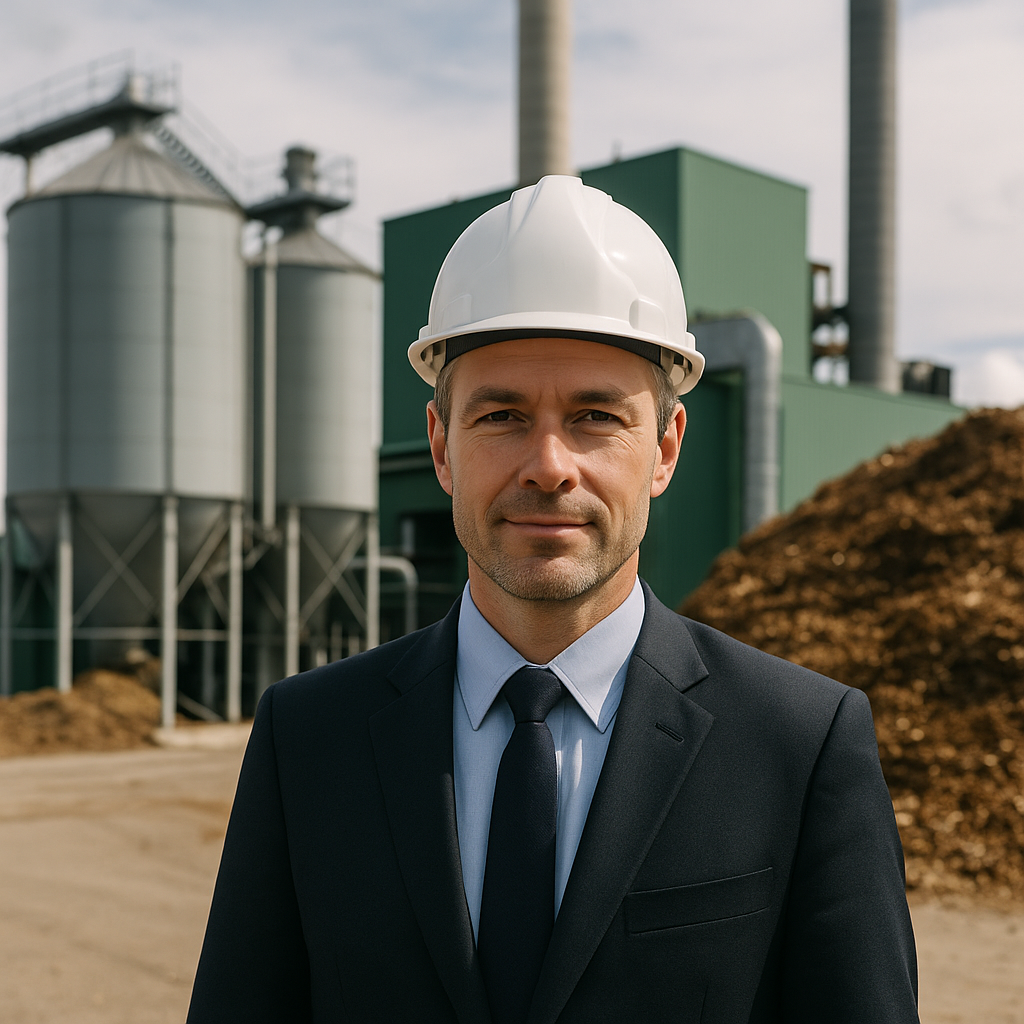Biomass energy, as part of renewable energy sources, has been gaining increasing importance due to its sustainability, reduced greenhouse gas emissions, and ability to convert organic waste into energy. However, establishing a biomass power plant requires navigating through a series of legal, technical, and environmental procedures.
In Turkey, biomass energy investments are regulated under energy market laws, environmental legislation, and licensing procedures overseen by the Energy Market Regulatory Authority (EPDK). This article will detail the legal processes required to establish a biomass power plant, from licensing to environmental compliance.
1. Legal Framework for Biomass Power Plants
The primary laws and regulations governing biomass power plants in Turkey include:
- Electricity Market Law (Law No. 6446): Governs electricity generation and licensing.
- Renewable Energy Law (Law No. 5346): Provides incentives for renewable energy, including biomass.
- Environmental Law (Law No. 2872): Regulates environmental protection and waste management.
- Waste Management Regulation: Ensures safe handling of biomass feedstocks.
- Occupational Health and Safety Law (Law No. 6331): Sets workplace safety requirements.
- Municipal Waste Regulations: Address the sourcing of biomass from urban and agricultural waste.
2. Pre-Investment Feasibility
Before starting the licensing process, investors should:
- Conduct a feasibility study analyzing biomass availability (agricultural residues, forestry waste, animal waste, or municipal solid waste).
- Prepare a financial plan for construction, equipment, and operation.
- Identify a suitable site that complies with zoning and environmental regulations.
3. Licensing Requirements
3.1. EPDK Pre-License
For projects exceeding 1 MW capacity, obtaining a pre-license from EPDK is mandatory. The pre-license period (usually 24-36 months) allows investors to:
- Secure land rights (ownership or lease).
- Complete environmental permits (EIA report).
- Obtain necessary technical approvals (grid connection agreements).
3.2. Generation License
After fulfilling pre-license obligations, the investor applies for a generation license from EPDK.
Key requirements:
- Technical capacity reports.
- Corporate documents (articles of association, trade registry records).
- Proof of financial capability (balance sheets, guarantees).
- Environmental approvals.
4. Zoning and Land Use Permits
4.1. Zoning Plan Approval
The biomass power plant site must be compatible with the local zoning plan.
- If necessary, a zoning plan change application is made to the municipality or relevant authority.
- Land classification (e.g., agricultural or industrial land) must be checked to avoid conflicts.
4.2. Construction Permit
Before construction begins, an inşaat ruhsatı (building permit) must be obtained from the local municipality or provincial administration. Engineering and architectural plans must comply with national building codes.
5. Environmental Impact Assessment (EIA)
Environmental approvals are one of the most critical steps:
- Most biomass power plants require a full EIA report due to potential emissions and waste handling.
- The EIA process evaluates air quality impacts, waste disposal, water usage, and potential risks to local ecosystems.
- The “EIA Positive” decision must be obtained before proceeding with the project.
6. Waste Supply Agreements
A biomass plant requires a continuous supply of organic materials. Investors must:
- Enter into agreements with municipalities, agricultural cooperatives, or waste collection companies to secure feedstock.
- Ensure compliance with Waste Management Regulation for the transportation and storage of organic waste.
7. Grid Connection Permits
The electricity generated must be integrated into the national grid:
- TEİAŞ (Turkish Electricity Transmission Corporation) or the relevant distribution company issues a grid connection agreement.
- Technical compatibility studies ensure the plant’s generation capacity aligns with local grid infrastructure.
8. Health and Safety Compliance
Biomass plants involve handling combustible materials and operating high-temperature boilers. Therefore:
- Occupational health and safety plans must be prepared according to Law No. 6331.
- Fire safety measures, explosion prevention, and emergency response plans are mandatory.
9. YEKDEM (Renewable Energy Support Mechanism)
Biomass plants benefit from the Renewable Energy Resources Support Mechanism (YEKDEM):
- A feed-in tariff is guaranteed for 10 years for biomass-based electricity generation.
- Additional incentives are granted for locally manufactured equipment.
- To benefit from YEKDEM, the plant must be registered with EPDK.
10. Other Permits and Requirements
- Water Use Permits: If the plant uses water for cooling or steam generation, approvals from the State Hydraulic Works (DSİ) may be necessary.
- Emission Permits: Biomass combustion produces emissions that must comply with air quality standards regulated by the Ministry of Environment.
- Insurance: Liability and environmental damage insurance policies are often required by financing institutions.
11. Timeline for Establishing a Biomass Power Plant
The legal and administrative process typically takes 18 to 30 months, depending on:
- Project size and complexity.
- Duration of EIA approval.
- Speed of licensing procedures with EPDK and local authorities.
12. Common Legal Risks
12.1. Land Disputes
If land use rights are unclear or zoning changes face objections, the project may face legal delays.
12.2. Waste Supply Issues
Failure to secure reliable biomass supply contracts may lead to operational challenges.
12.3. Environmental Litigation
Local communities or NGOs may challenge EIA approvals, causing project delays.
13. Role of Legal Counsel
A lawyer specializing in energy and environmental law can:
- Prepare and review EPDK license applications.
- Draft waste supply contracts with municipalities or private suppliers.
- Ensure compliance with EIA regulations and represent the investor in potential disputes.
- Negotiate grid connection agreements with TEİAŞ or local distribution companies.
14. Conclusion
Establishing a biomass power plant in Turkey requires navigating multiple legal processes, including:
- EPDK licensing (pre-license and generation license).
- Environmental approvals (EIA).
- Zoning and building permits.
- Grid connection agreements and waste supply contracts.
Investors who proactively address these requirements, work with technical and legal experts, and benefit from government incentives like YEKDEM can achieve long-term success in the renewable energy market.

Yanıt yok